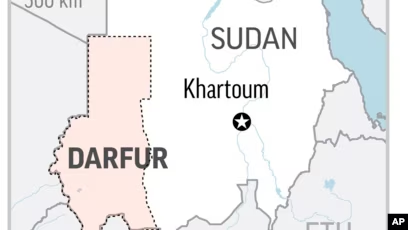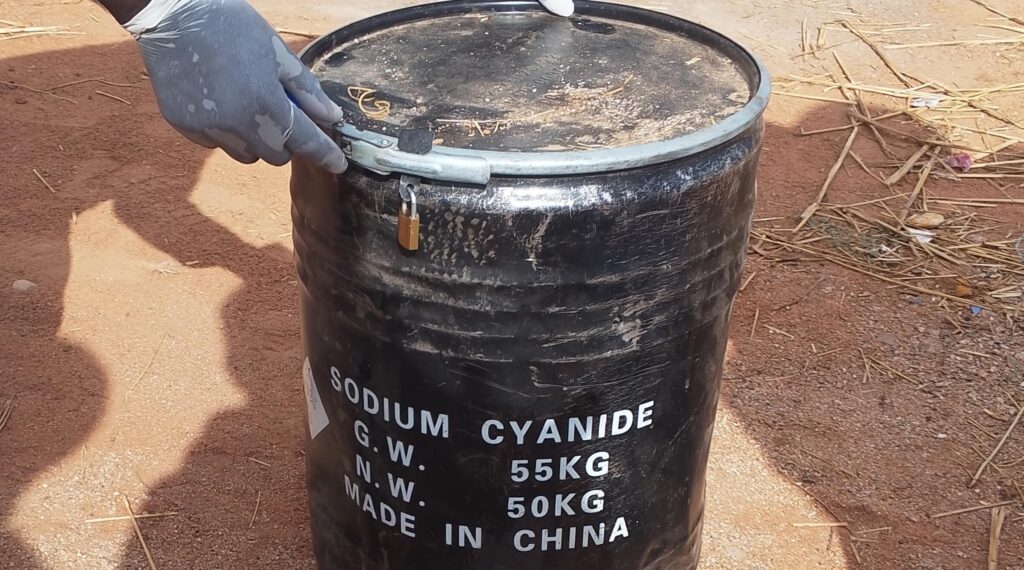Residents of Tor Kolme village in Central Darfur’s Wadi Salih Locality have reported severe environmental pollution and livestock deaths due to the use of cyanide in artisanal gold mining.
Cyanide, a highly toxic chemical, is commonly used to extract gold from ore, particularly by small-scale miners in Sudan who also rely on mercury for the same purpose.
While large-scale mining operations have adopted safer alternatives, traditional miners continue using cyanide and mercury due to their affordability and accessibility, despite their well-documented dangers. Environmental experts warn that the widespread use of these chemicals poses a significant threat to ecosystems and public health.
Sudan officially banned both mercury and cyanide in gold mining in 2019 following protests over health hazards. However, enforcement remains weak, and the chemicals are still widely available through merchants who often trade them for gold.
Babiker Mohamed Osman, head of the Peace Committee in the Trij administrative unit, told Radio Tamazuj on Sunday that complaints from Tor Kolme pointed to contaminated water sources in Wadi Ariba, a gold mining site, which had led to the deaths of camels and cattle.
“We visited the area with community leaders and observed cyanide spread along the valley,” Osman said. “When we asked about the dangers, they confirmed it harms humans and animals. Many animals died after drinking cyanide-contaminated water.”
“When we arrived there, we found the area contaminated and affected by cyanide, and people are working in the gold mine. It kills animals, and people have been touching it with their bare hands,” he added.

Osman said a mining company representative acknowledged cyanide’s risks to livestock but denied harm to humans. “We witnessed a donkey collapse immediately after drinking from a well near cyanide tanks,” he said.
He urged Central Darfur’s health ministry to intervene urgently, assess the cyanide threat, and implement measures to prevent further harm.
Yasin Abdalmotalab, a technical expert, told Radio Tamazuj that cyanide is “highly destructive and lethal” to the environment. He linked its spread to rising cases of thyroid disease in Tor Kolme and Trig areas.
“Cyanide attacks the human immune system, causing cancer—it’s a leading carcinogen,” he said.
Abdalmotalab noted that northern Sudan, including areas like Dongola, has enforced strict regulations against cyanide use, even halting operations by a Turkish mining company located 25 kilometers from residential areas. In contrast, Tor Kolme’s mining sites are situated near water sources, increasing contamination risks.
He warned that seasonal rains could spread cyanide through runoff, worsening the crisis.
Four major gold mining sites operate in Tor Kolme’s valleys. After clashes between the army and the Rapid Support Forces in April 2023 forced mining companies to withdraw, locals began using abandoned cyanide stocks for artisanal mining.




